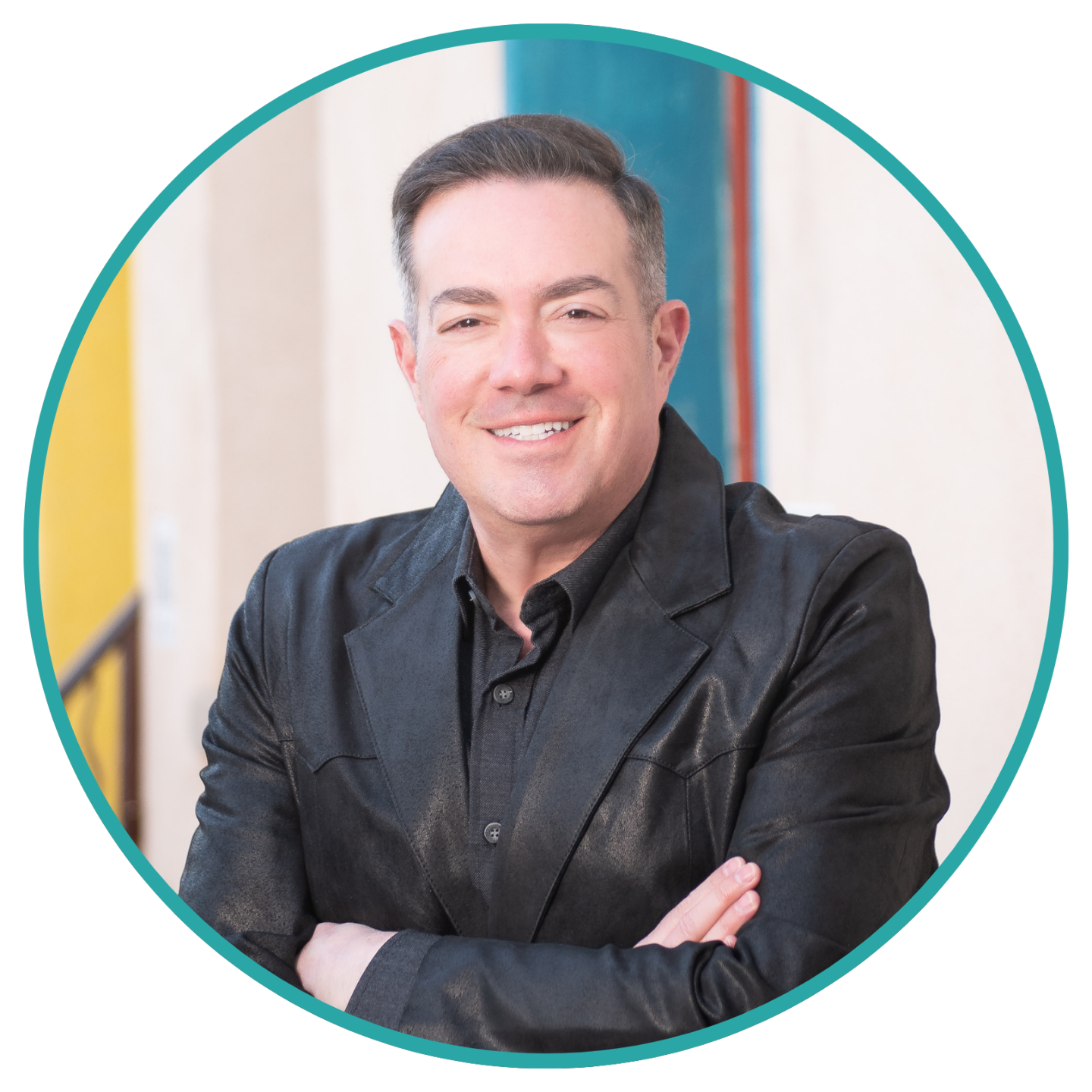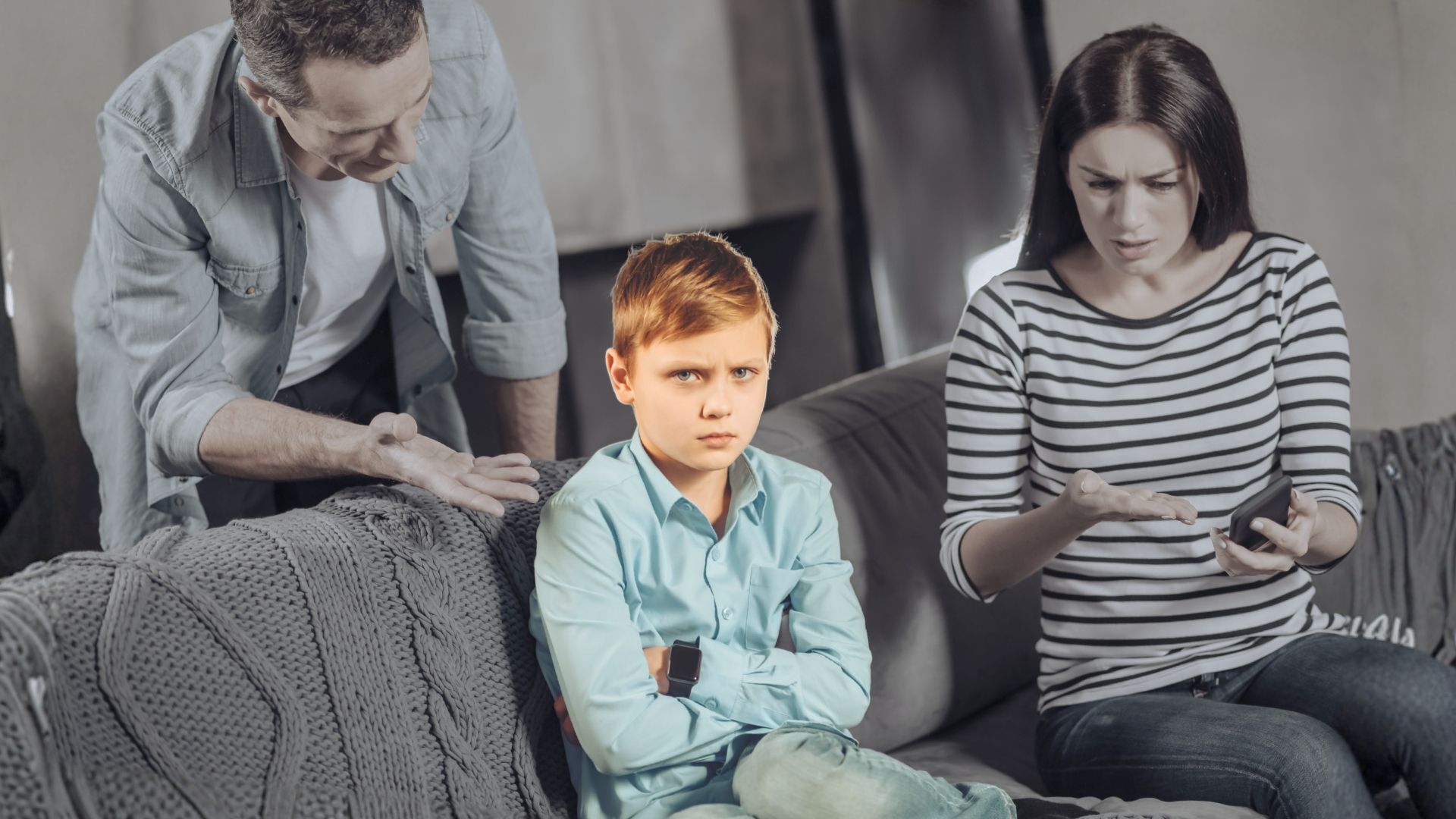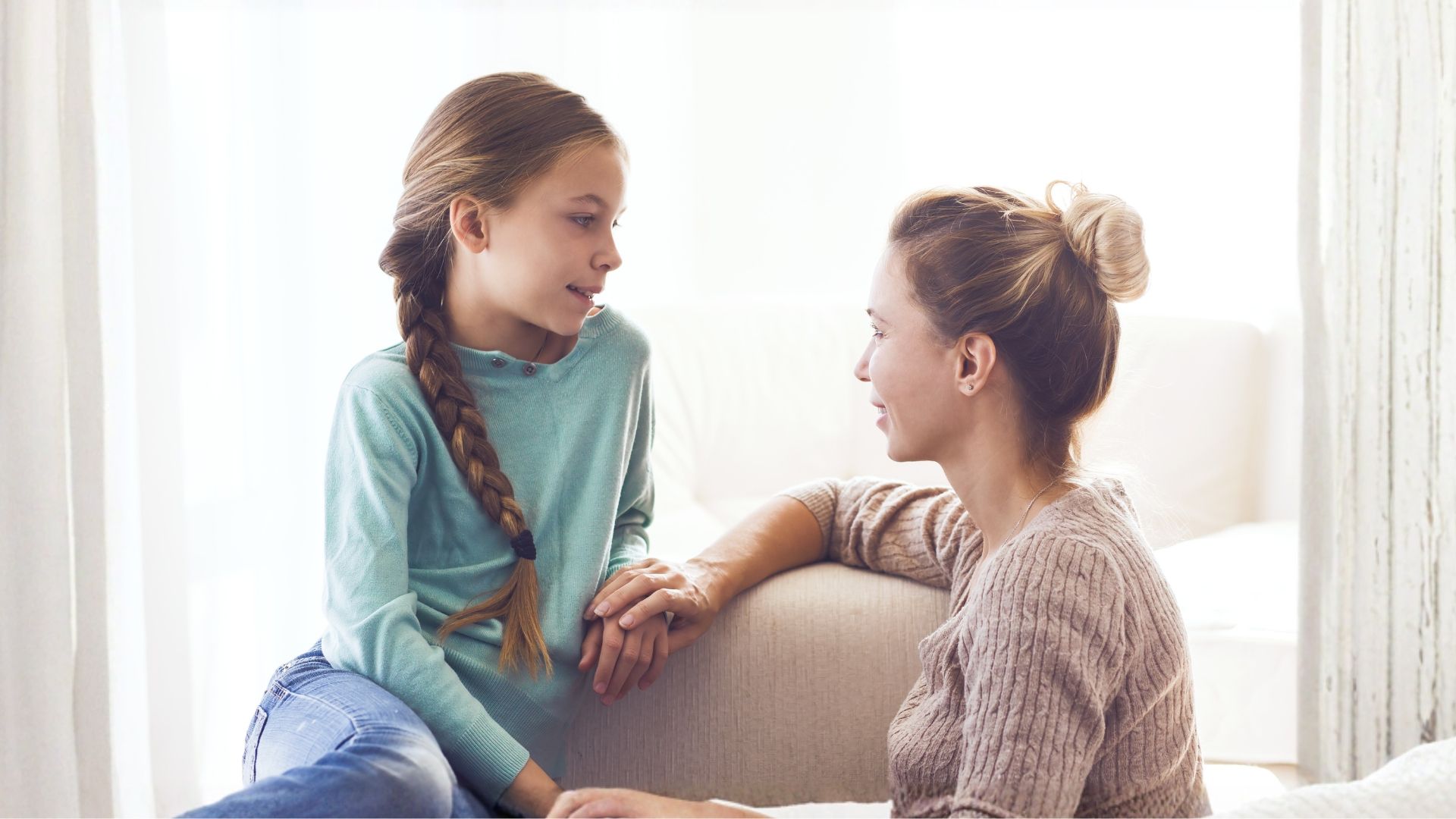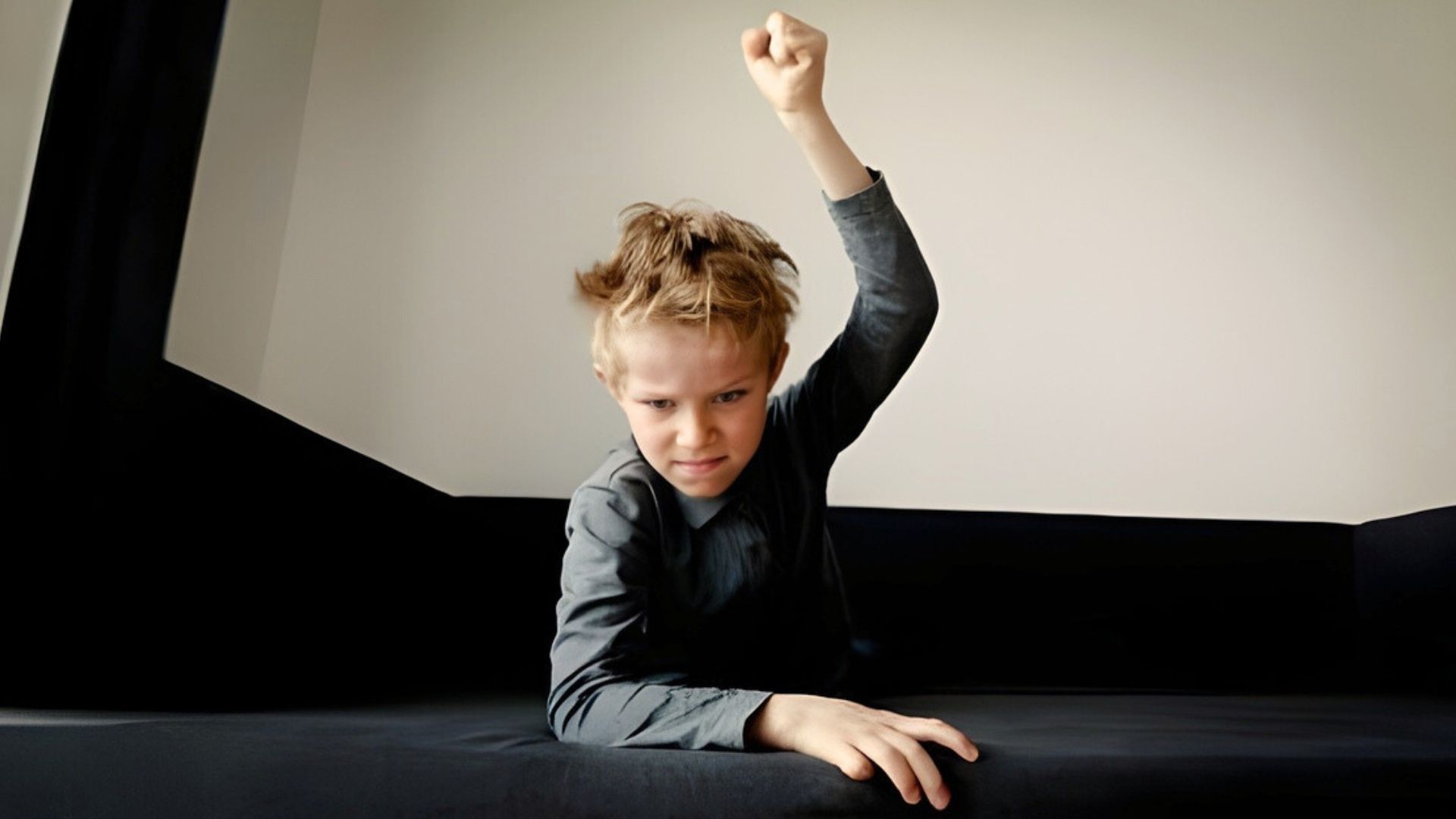Why Isn’t Therapy Helping My Child With ADHD? | Ryan Wexelblatt, LCSW

You followed the recommendations. You got the diagnosis. You found a therapist who seemed like a good fit. And yet, your child is still impulsive. Still arguing. Still unable to follow basic instructions. You've done everything the professionals suggested, but nothing seems to stick.
If therapy has not helped your ADHD child function better, you are not alone. I have met thousands of families in this exact place. Parents who worked hard to get help, who did everything right, and who still feel like things are not improving.
I understand this deeply from my own experience of raising a child with multiple diagnoses, and the lessons from that journey continue to shape how I teach parents today.
Let me be clear. I am not anti-therapy. I am a licensed therapist myself.
But after years of working exclusively with ADHD families, and after reviewing what the research actually says, I have learned something important:
Traditional therapy is not the right tool for changing ADHD-related behavior, which is why no form of therapy is included in the ADHD treatment recommendations from the American Academy of Pediatrics or Society of Clinical Child & Adolescent Psychology.
Why Therapy Is Ineffective for Children With ADHD
Children with ADHD do not struggle because they lack insight or emotional awareness. They struggle due to differences in executive functioning, because ADHD is a developmental delay in executive functioning.
A therapist teaching your child "coping skills" in an office is not going to turn into skill generalization. They will not remember to use those skills a week later, because the ADHD brain tends to live in the moment, and struggles with future thinking (non-verbal working memory), as well as episodic memory (remembering emotions from past experiences, and using that information in the present or near future).
Traditional therapy methods, such as talk therapy or play therapy, are not designed for skill building in real-life settings (e.g., at home, school, or recess). Most therapists receive little to no formal training in ADHD or executive functioning. I know this firsthand because I received none in graduate school.
So therapists do what they know best: they talk, they play, they process feelings.
The problem is that none of that teaches a child how to stop getting "stuck" when they're not getting their way. It doesn't teach them how to handle being told "no," or how to stay on task long enough to finish their homework.
As Dr. Russell Barkley, one of the most respected ADHD researchers, explains, therapy is not helpful unless it happens at the point of performance, meaning the moment when the behavior is actually happening. A conversation once a week in an office does not translate to daily life.
In fact, Barkley calls traditional counseling for ADHD a placebo. It might feel supportive, but it does not produce meaningful changes in functioning.
What Actually Helps Children With ADHD Make Progress
The American Academy of Pediatrics recommends Parent Behavior Training as the most effective treatment for ADHD.
That might sound surprising, especially if you have been focused on therapy, but here is why it matters.
Parent Behavior Training teaches you how to respond differently, create structure, and help your child develop the skills they need in real life.
It is not about being stricter. It is about understanding how your child's brain works and adjusting your approach to meet them where they are. When parents change their response, the child's behavior often follows.
Over the years, I have witnessed the profound impact of this shift. Families who once felt hopeless start to see their child make real progress, not because their child suddenly changed, but because the adults around them did.
That is why I created ADHD-specific parent training programs:
-
Capable & Confident (ages 4–7)
-
Scaffolding Better Behavior (ages 8–17)
-
Creating Daily Expectations — Three different courses (ages 4–7, 8–11, 12–17)
These evidence-informed programs are Parent Behavior Training, designed specifically for parents of children with ADHD, yet can be used with any children in a home. They focus on what actually moves the needle: teaching parents how to help their kids build real-world skills and help their children learn how capable they are.
Understanding Why ADHD Kids Still Struggle Even With Therapy
If therapy has not helped your child function better, it is not because you did anything wrong. It is because therapy has not been proven to show improvement in children with ADHD who struggle with behavior, emotional regulation, cooperation, executive functioning, or social skills. This is why no form of therapy is recommended by the American Academy of Pediatrics or the Society of Clinical Child & Adolescent Psychology.
ADHD is not a mental health condition; it's a developmental delay in executive functioning. That means your child's ability to manage emotions, exhibit flexibility when needed, tolerate frustration and temporary discomfort, and use their internal dialogue (what I refer to as "brain voice" with kids) develops more slowly than that of their peers.
So when we expect kids to try harder or "remember what we talked about in therapy," we are asking them to use skills they do not yet have.
Parent Behavior Training helps bridge that gap. It equips you to teach skills in the moment, when frustration is occurring, directions are being ignored, and emotions are high. That is when learning actually sticks, and why evidence-informed Parent Behavior Training is the recommended treatment for children with ADHD, not therapy.
How Families Make Real Progress
I have seen thousands of families turn things around once they followed the recommended ADHD treatment recommendations.
They learned how to:
-
Create daily expectations for behavior, cooperation, and household help so that privileges like screen time and phone use are no longer entitlements; instead, they are earned by meeting age-appropriate expectations.
-
Stop engaging in parental accommodation (parental accommodation is when parents change their behavior to avoid their child's temporary distress. While this may seem compassionate, the research data show that parental accommodation leads to worsening of behaviors, anxiety, inflexibility, etc.
-
Reduce arguing and power struggles by learning how to avoid getting pulled into what I call the "argument/reasoning/negotiation vortex."
-
Cultivate flexibility and not accommodate inflexibility in daily situations.
-
Help kids transition from "prompt-dependence" (where adults act as their executive functioning) to independence.
-
Help build social executive function skills so kids can form and maintain friendships with peers of a similar age.
When these changes occur at home, they ripple outward to school, friendships, and self-esteem. That is when parents finally start to see progress that lasts.
If you have been doing everything right and your child is still struggling, the issue is not with your child or your effort. It is the approach. Once you start using strategies explicitly designed for ADHD, things begin to make sense for you and for your child.
Learn What Works for ADHD From Someone Who Gets It
To understand what actually helps kids with ADHD succeed, check out Capable & Confident (ages 4–7) and Scaffolding Better Behavior (ages 8–17), the evidence-informed, foundational ADHD Dude Parent Behavior Training programs—both included in the ADHD Dude Membership.
These programs were designed to provide parents with the same tools that research and experience have shown to make a difference.
References
American Academy of Pediatrics. (2019). Clinical practice guideline for the diagnosis, evaluation, and treatment of attention-deficit/hyperactivity disorder in children and adolescents. Pediatrics, 144(4), e20192528. https://doi.org/10.1542/peds.2019-2528
American Psychological Association, Division 53 (Society of Clinical Child & Adolescent Psychology). (2024). ADHD treatment summary. Effective Child Therapy. https://effectivechildtherapy.org
Barkley, R. A. (2011). Executive functions: What they are, how they work, and why they evolved. Guilford Press.
Barkley, R. A. (2015). Attention-deficit hyperactivity disorder: A handbook for diagnosis and treatment (4th ed.). Guilford Press.
Barkley, R. A. (2022). The Importance of Executive Function Deficits in ADHD. Journal of Pediatric Neuropsychology, 8(1), 1–13. https://doi.org/10.1007/s40817-021-00107-5
Chronis-Tuscano, A., O’Brien, K. A., Johnston, C., Jones, H. A., Clarke, T. L., Raggi, V. L., & Seymour, K. E. (2011). The relation between maternal ADHD symptoms and parenting. Journal of Abnormal Child Psychology, 39(8), 1175–1187. https://doi.org/10.1007/s10802-011-9530-9
Fabiano, G. A., Pelham, W. E., Coles, E. K., Gnagy, E. M., Chronis-Tuscano, A., & O’Connor, B. C. (2009). A meta-analysis of behavioral treatments for ADHD. Clinical Psychology Review, 29(2), 129–140. https://doi.org/10.1016/j.cpr.2008.11.001
Forehand, R., & McMahon, R. J. (2003). Helping the noncompliant child: Family-based treatment for oppositional behavior (2nd ed.). Guilford Press.
Leibowitz, E. R., Scharfstein, L. A., & Jones, J. (2014). Parental accommodation in youth anxiety: Assessment and treatment implications. Journal of Anxiety Disorders, 28(8), 865–870. https://doi.org/10.1016/j.janxdis.2014.09.007
McClelland, M. M., & Cameron, C. E. (2019). Self-regulation and academic achievement. Child Development Perspectives, 13(3), 141–145. https://doi.org/10.1111/cdep.12321
Murray, D. W., Rosanbalm, K., Christopoulos, C., & Hamoudi, A. (2015). Self-regulation and toxic stress: A review of ecological, biological, and developmental studies of self-regulation and stress. Office of Planning, Research and Evaluation. https://www.acf.hhs.gov/opre
Pelham, W. E., Fabiano, G. A., & Massetti, G. M. (2005). Evidence-based assessment and treatment of ADHD in school-age children. Journal of Clinical Child and Adolescent Psychology, 34(3), 449–476. https://doi.org/10.1207/s15374424jccp3403_5
Rosanbalm, K., & Murray, D. (2017). Caregiver practices that support healthy self-regulation in young children. U.S. Department of Health and Human Services. https://www.acf.hhs.gov/opre
Shaw, M., Hodgkins, P., Caci, H., Young, S., Kahle, J., Woods, A. G., & Arnold, L. E. (2012). A systematic review of ADHD treatments. BMC Psychiatry, 12(1), 150. https://doi.org/10.1186/1471-244X-12-150
Sibley, M. H., Kuriyan, A. B., Evans, S. W., Waxmonsky, J. G., & Smith, B. H. (2014). Parent-teen behavior therapy for ADHD. Child Psychiatry & Human Development, 45(5), 628–636. https://doi.org/10.1007/s10578-013-0438-3
FAQs
Q: Doesn’t therapy help my ADHD child's behavior?
A: Traditional therapy focuses on talking about feelings instead of teaching executive function skills in the moment. Kids with ADHD need strategies that are practiced where the behavior occurs, not once a week in an office.
Q: What is parent behavior training?
A: Parent behavior training is a structured, evidence-based approach that helps parents create predictable routines, build structure, and respond in ways that support skill development and self-regulation.
Q: How is parent behavior training different from traditional therapy?
A: Therapy helps with emotional awareness, while parent behavior training focuses on real-world skill building. It teaches parents how to guide behavior in daily life using consistent, practical methods that generalize outside of sessions.
Q: What changes can I expect when I start using these strategies?
A: Parents often see less arguing, fewer power struggles, and better follow-through at home and school. Over time, kids become more flexible, resilient, and confident because expectations are more transparent and more achievable.
Q: Where can I learn these strategies for my child's age group?
A: You can learn these strategies through my videos on the ADHD Dude YouTube channel. For more structured guidance, explore Capable & Confident (ages 4–7) and Scaffolding Better Behavior (ages 8–17), which provide parents with practical, step-by-step tools for supporting their children.
